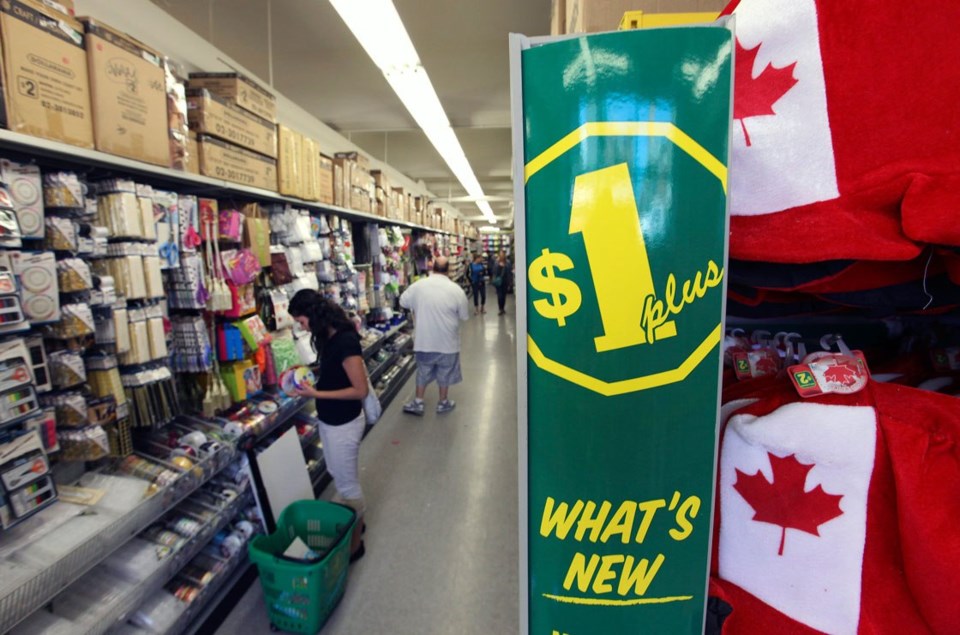The biggest dollar store in Burnaby has seen a recent surge as shoppers seem eager to get back to their old Christmas shopping habits.
Retailer Dollarama, which operates a mega-store in the Station Square shopping mall, beat estimates with its third-quarter profit on Wednesday, posting a profit of $183.4 million up from $161.9 million in the same quarter last year. The profit amounted to 61 cents per diluted share, up from 52 cents per diluted share a year earlier.
"We entered the fourth quarter in a solid inventory position with well-stocked stores ahead of the important holiday season," Dollarama president and CEO Neil Rossy told analysts during a conference call on Wednesday. "This is despite the various headwinds which continue impacting the retail sector, namely supply chain pressures and cost inflation."
Rossy said the retailer's financial performance in the quarter ended Oct. 31 represents a "return to a more normalized situation."
"There were fewer restrictions in place, and no restrictions on the sale of goods or on specific retail channels," he told analysts.
The reduction in restrictions led to a shift in shopping habits, he said.
Customers shopped more often but bought less at one time — a reversal of the pandemic trend of shoppers stocking up but making fewer trips to the store.
Dollarama said the average transaction size fell 2.8 per cent, but the number of transactions rose 3.7 per cent.
One issue for many businesses is having enough staff on hand as more than half of small businesses (55 per cent) cannot get all the staff they need for current operations or to meet new demand, while another 16 per cent were able to face the challenge, but at a significant additional cost, according to a new report by the Canadian Federation of Independent Business (CFIB) entitled Labour shortages are back with a vengeance. Despite a majority of affected businesses raising wages, the issue persists, leading many to try a number of alternatives, with temporary foreign workers (TFWs) and automation being among the most successful.
“Businesses across BC have been finding it very challenging to get the help and staff they need,” said Seth Scott, Senior Policy Analyst, BC at CFIB. “Labour shortages are especially acute in BC, over half (59 per cent) of BC small businesses report experiencing labour shortages, the fourth highest in Canada.”
“Small businesses have a long and steep climb to recovery, and having the right workers in place or other tools to address labour shortages is a big part of that,” concluded Corinne Pohlmann, Senior Vice-President of National Affairs at CFIB. “They are already doing all they can to attract workers, but they need governments to do their part by adopting policies that increase productivity, connect job seekers with employers and don’t put the cost of hiring out of reach.”
- With additional reporting by the Canadian Press



